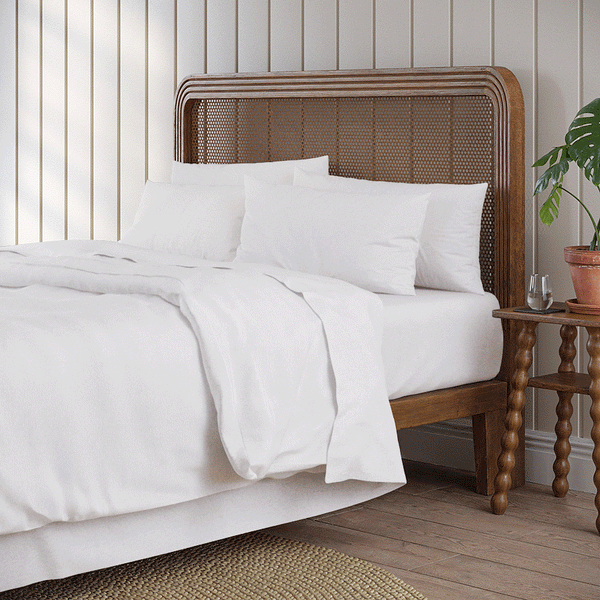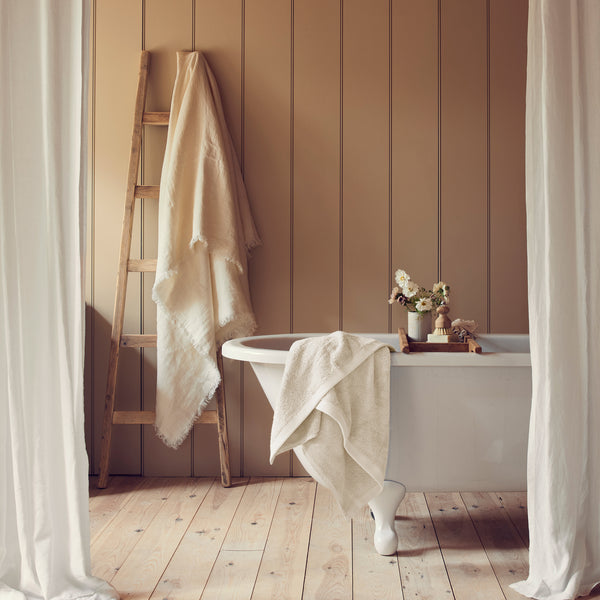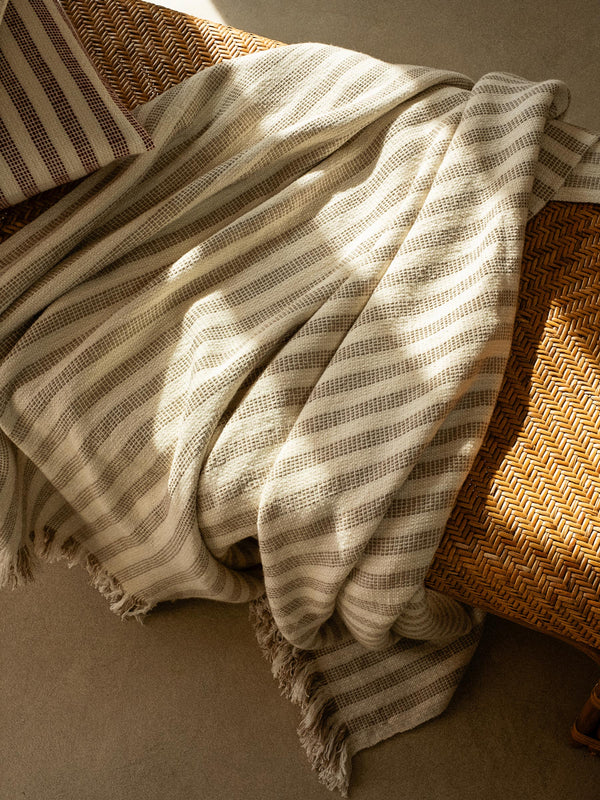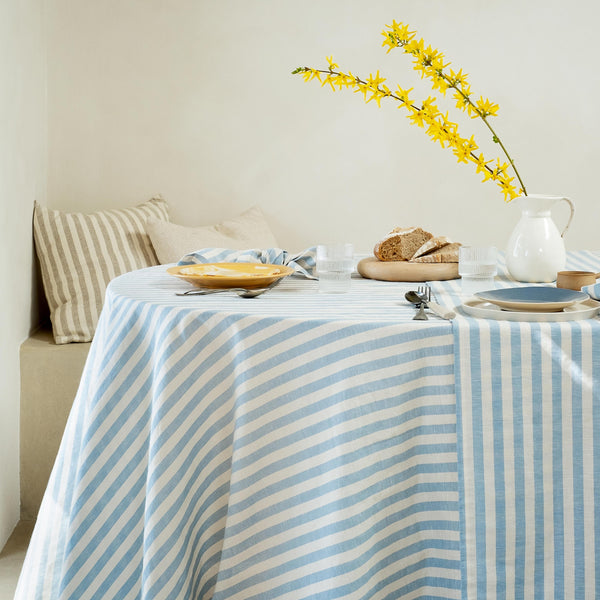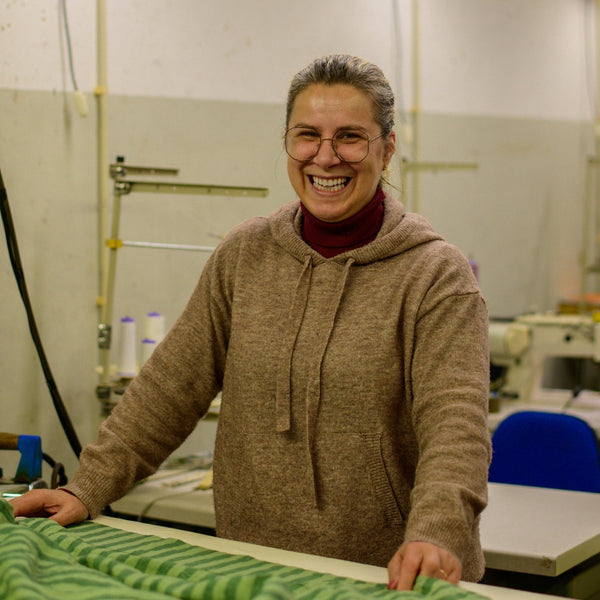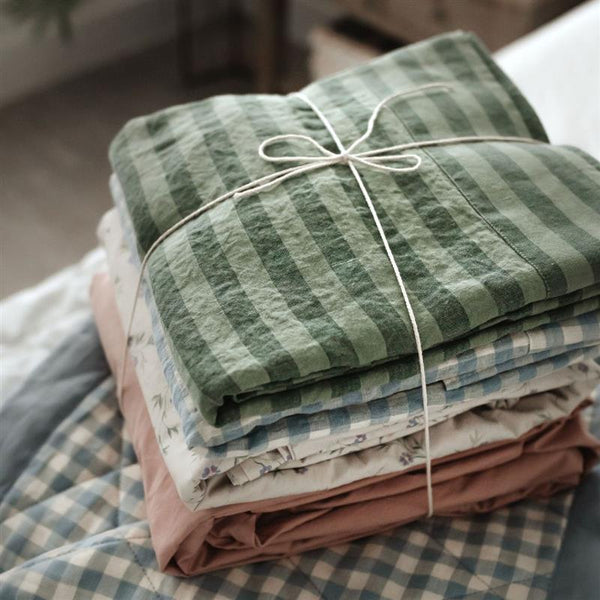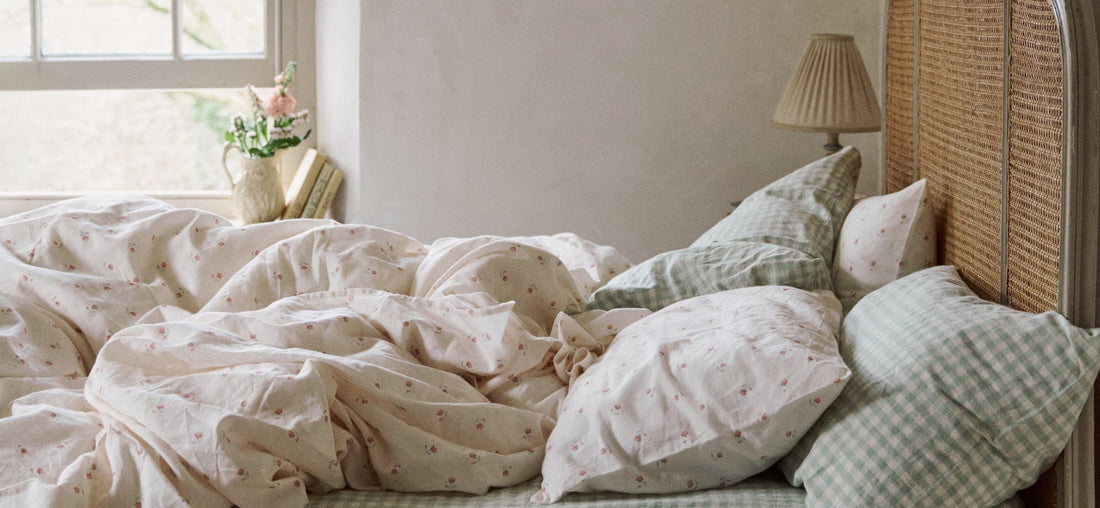Ever since our humble beginnings back in 2017, when we first started out with 100% linen bedding in three simple shades, Dove Grey, Blush Pink and White (yes, our website looked a little different back then!), we've had no reason to talk about anything other than linen when it came to bedding materials.
Fast forward to now, eight years on, and our cotton bedding range has grown into a fully fledged part of the Piglet family. What started as a big leap has become a natural next step – and not just because it gave our content team a brief break from writing the word ‘linen’ (don’t worry, we’re still as obsessed as ever). With both linen and cotton now playing a starring role in our collection, we’re better placed than ever to explore the differences between these two natural bedding options – helping you decide which one suits you best.
Buckle up and prepare for the gentlest fight you've ever witnessed as we hit play on 'the battle of the naturals' - or to put it more simply, the key differences between linen vs cotton bedsheets...

What’s the difference between linen and cotton bedding?
There are a few key differences between cotton and linen bedding that should help you to decide which material is for you; let's delve into them.
Cotton fabric is made from the fluffy seed-hair fiber of the cotton plant. It is a lightweight and durable fabric that has been used for centuries due to its ability to be dyed and woven into many different textures, the versatility it offers, and its affordability.
Linen, on the other hand, is made from the fibers of the flax plant and is one of the world’s oldest fabrics. The history of this material goes back thousands of years - it was used for clothing during ancient Egypt and is even mentioned in the Bible. Linen has plenty of unique features that make it ideal for bedding - it’s easy to dye and is naturally breathable.
Cotton usually feels smooth to the touch and sometimes has a satin-like texture, whereas linen often has a more cosy, rustic feeling texture to it, resulting in those wonderful natural crinkles that you'll often hear us talking about!
What are the pros and cons of linen bedding?
As well as being exceptionally soft, linen's natural long fibres make linen bedding breathable and absorbent, helping to regulate your body temperature as you sleep. Its density also means the fabric has a natural weight to it, making it feel like a comforting, warm embrace and easing you into a wonderfully deep sleep. It’s the perfect material for every season - feeling fresh in the summer and warm in the winter. Another great quality of linen bedding is that it gets softer and softer with wear, and its durability means you’ll be enjoying your linen bedding for years to come.
The production of linen is very sustainable as every part of the flax plant can be used. It's a rotation crop, farmed naturally in small batches. Our linen is sourced from Europe and is OEKO-Tex certified, meaning it doesn't contain harmful chemicals.
There are very few cons to choosing linen bed sheets as they’re suitable for all seasons and ideal for those who run cold or warm when they sleep. The material does crease quite easily but we consider this just part of its charm: life is too short to be worrying about ironing your bed sheets.
What are the pros and cons of cotton bedding?
Cotton is another natural fibre that has lots of super benefits when used as bedding. It’s strong and durable, and it’s breathable like linen but doesn’t have the weight that linen does. The feel of the fabric tends to be thinner than linen and it’s also really breathable as it absorbs moisture and releases it quickly, keeping you cool in the summer months.
It’s not as warm as linen, however, and because it’s more lightweight, it doesn’t have quite the same cosy factor that linen bedsheets do. Our seersucker cotton bedding is made from 100% cotton and boasts a 200-thread count which means they feel super soft and luxurious, while the seersucker texture brings the overall result closer to the linen that we know and love.
Enter, the linen and cotton blend.
We’ve taken the best of both worlds with our Signature Linen Blend - crafted from 55 % European flax linen and 45 % long‑staple cotton - to create bedding that’s cozy yet breathable, and soft without losing linen’s effortless laid-back feel. Designed for year‑round comfort, this blend gives you linen’s relaxed texture paired with cotton’s gentle smoothness, all while keeping things durable and easy to care for. It’s the perfect middle ground for anyone torn between the crispness of linen and the classic feel of cotton.
The verdict: Are linen or cotton bedsheets better to sleep with?
So, which is better – linen or cotton? The truth is, it all comes down to personal preference. Linen is loved for its relaxed look, breathability, and natural temperature regulation, while cotton offers a smoother feel and classic crispness. Whichever you choose, both are beautiful, natural options designed to help you drift off in comfort.
